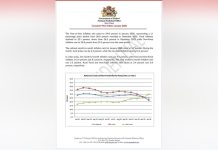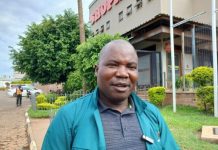Africa-Press – Malawi. People seem to be in a hurry to steal as much as they can, and then go away from Malawi to enjoy the corruptly obtained trappings. It is as if the concept of Ubunthu no longer applies to our daily activities.
In the past, life was all about love. In the typical village setup, no one was an orphan as, after the death of parents, others would take over the responsibility.
The extended family system was in full gear, with grandparents playing the role of society’s anchor. And, then, HIV and Aids came, disrupting our way of life. HIV and Aids did not just ravage people’s health; it has turned life upside down.
As HIV and Aids have been ravaging society, the Covid pandemic has reared its ugly face in our affairs, disrupting economies [with Malawi’s economy being on its knees, literally].
As a result, even our leaders have been attributing their failure to fulfil some of their promises to the Covid pandemic. Malawians remember, pretty well, that they were promised jobs; one million jobs at that.
Malawians were told that they would buy a 50 kilogramme bag of fertiliser at K4,500. Malawian, voters in particular, were told that the Kwacha would rebound and start pushing shoulder-to-shoulder with the United States dollar.
Farmers were promised good prices on the market, as if the government would be buying farm produce. Somehow, our leaders forgot that ours is a liberalised economy, where market forces are at play. When demand is high, commodity prices rocket; when supply is high, demand plummets and prices tumble. That is a fact of life.
Now, the reality seems to be sinking in in our leaders’ minds, with prices of basic commodities rocketing, the price of fertiliser becoming too high for the comfort of the farmer and the government playing hide-and-seek on the issue of the approach it will adopt in implementing this year’s Affordable Inputs Programme.
This is happening when drugs are still in short supply in public hospitals and workers continue to get peanuts. The most worrying thing, though, as the European Union Ambassador put it last week, is that corruption levels show no sign of receding, such that hope is running low in the citizenry.
And, sadly, all the government can do is promise and promise and promise— to do something about the situation. It is as if we have become the land of promise and not Canaan, as someone told us we would become.
We have been moving in circles since 1994. Even after development partners pulled out aid, we seem not a tad interested in ridding the country of the vice called corruption.
In so doing, we continue to condemn the majority of the population to poverty. How sad. In an ideal situation, our leaders and us, as the citizenry, were supposed to be shaking with rage.
Rage because, for the most part, we remain a miserable people. If ever one wanted evidence, they just have to travel on the Lilongwe-Kasungu Road via Mponera. The potholes represent the ruggedness of our hope.
We have been running low on hope for far too long and we cannot continue to live like this. We must make a decision to fight poverty and win the war. The first step is fighting corruption, which has been drilling holes in the public pulse, leaving us low on hope, low on faith and low on energy.
It is a precarious position. Maybe, to show that our government is serious on corruption, it should not throw spanners in the work of the Anti-Corruption Bureau but let it do its work. Malawians want to see corrupt people paying for their sins instead of being treated with kid gloves. Enough is enough.
As such, our leaders should show development partners, including the European Union, that time for lip service is over. Through action, and action only, can we win back donor confidence.
For More News And Analysis About Malawi Follow Africa-Press






